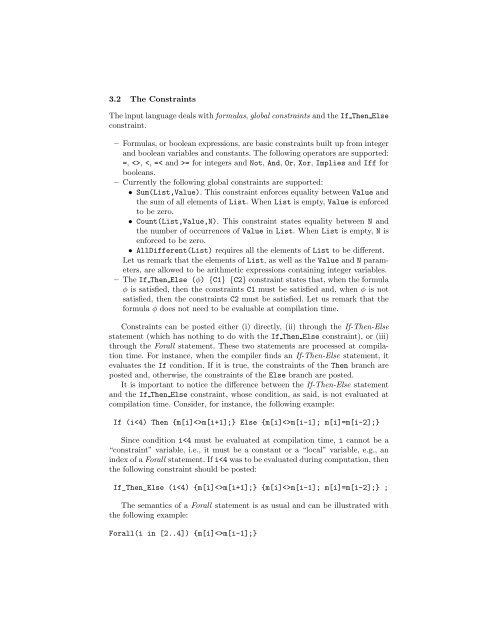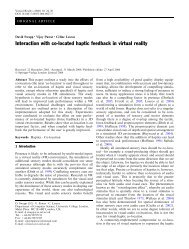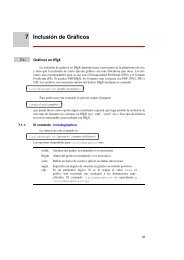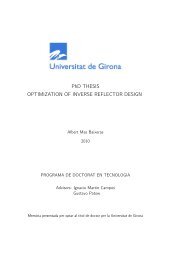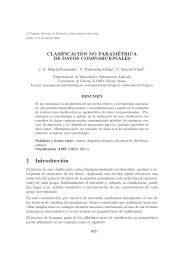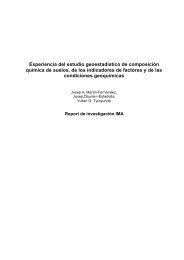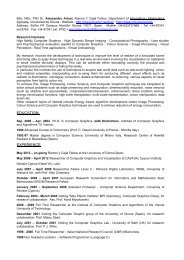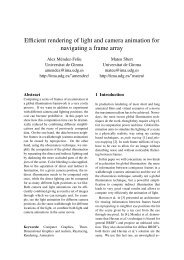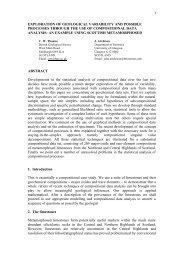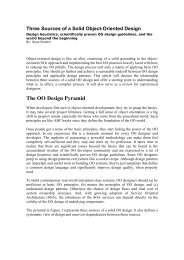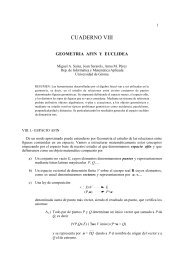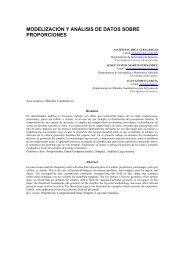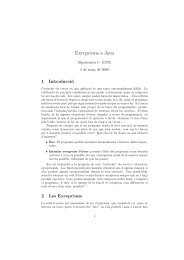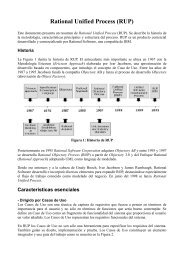SIMPLY: a Compiler from a CSP Modeling Language to the SMT-LIB ...
SIMPLY: a Compiler from a CSP Modeling Language to the SMT-LIB ...
SIMPLY: a Compiler from a CSP Modeling Language to the SMT-LIB ...
Create successful ePaper yourself
Turn your PDF publications into a flip-book with our unique Google optimized e-Paper software.
3.2 The ConstraintsThe input language deals with formulas, global constraints and <strong>the</strong> If Then Elseconstraint.– Formulas, or boolean expressions, are basic constraints built up <strong>from</strong> integerand boolean variables and constants. The following opera<strong>to</strong>rs are supported:=, , = for integers and Not, And, Or, Xor, Implies and Iff forbooleans.– Currently <strong>the</strong> following global constraints are supported:• Sum(List,Value). This constraint enforces equality between Value and<strong>the</strong> sum of all elements of List. When List is empty, Value is enforced<strong>to</strong> be zero.• Count(List,Value,N). This constraint states equality between N and<strong>the</strong> number of occurrences of Value in List. When List is empty, N isenforced <strong>to</strong> be zero.• AllDifferent(List) requires all <strong>the</strong> elements of List <strong>to</strong> be different.Let us remark that <strong>the</strong> elements of List, as well as <strong>the</strong> Value and N parameters,are allowed <strong>to</strong> be arithmetic expressions containing integer variables.– The If Then Else (φ) {C1} {C2} constraint states that, when <strong>the</strong> formulaφ is satisfied, <strong>the</strong>n <strong>the</strong> constraints C1 must be satisfied and, when φ is notsatisfied, <strong>the</strong>n <strong>the</strong> constraints C2 must be satisfied. Let us remark that <strong>the</strong>formula φ does not need <strong>to</strong> be evaluable at compilation time.Constraints can be posted ei<strong>the</strong>r (i) directly, (ii) through <strong>the</strong> If-Then-Elsestatement (which has nothing <strong>to</strong> do with <strong>the</strong> If Then Else constraint), or (iii)through <strong>the</strong> Forall statement. These two statements are processed at compilationtime. For instance, when <strong>the</strong> compiler finds an If-Then-Else statement, itevaluates <strong>the</strong> If condition. If it is true, <strong>the</strong> constraints of <strong>the</strong> Then branch areposted and, o<strong>the</strong>rwise, <strong>the</strong> constraints of <strong>the</strong> Else branch are posted.It is important <strong>to</strong> notice <strong>the</strong> difference between <strong>the</strong> If-Then-Else statementand <strong>the</strong> If Then Else constraint, whose condition, as said, is not evaluated atcompilation time. Consider, for instance, <strong>the</strong> following example:If (i


